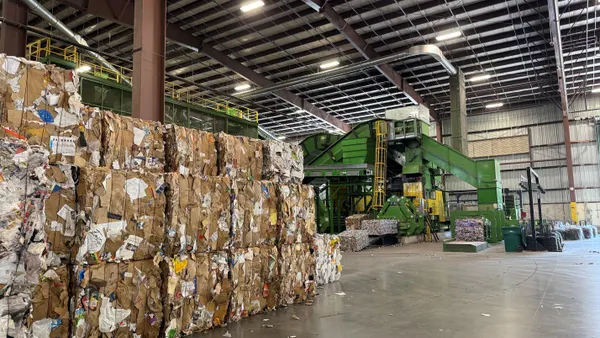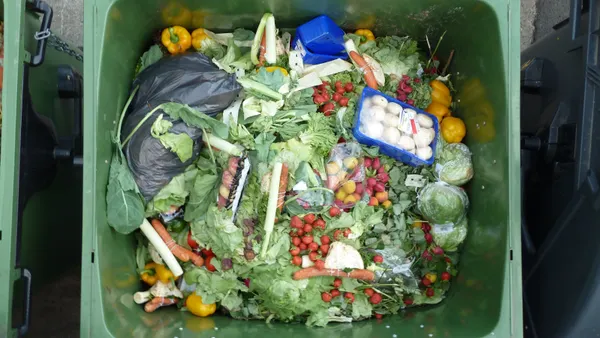Dive Brief:
- The U.S. EPA says it now agrees with aspects of a lawsuit filed against it by water utilities and chemical companies last year, according to a motion filed Thursday. That lawsuit aims to overturn the EPA’s drinking water regulation for PFAS.
- The American Water Works Association and Association of Metropolitan Water Agencies sued the agency last year, saying the EPA did not follow required legal steps under the Safe Drinking Water Act when it set new drinking water standards for certain per- and polyfluoroalkyl substances under the Biden administration in 2024.
- On Thursday, the EPA requested a federal court throw out part of the case, agreeing with the utilities that the prior administration had not set a required public comment period on the proposed inclusion of four versions of the chemicals: PFHxS, PFNA, PFBS and HFPO-DA, commonly known as GenX. The EPA says it will continue to defend its regulations of two other chemicals in the standard: PFOA and PFOS.
Dive Insight:
The EPA’s latest actions in this court case align with its previous announcement in May that it intends to roll back significant parts of the National Primary Drinking Water Regulation that set legally enforceable limits for six types of PFAS in drinking water.
The EPA under the Trump administration plans to rescind PFHxS, PFNA, PFBS and HFPO-DA from the drinking water standard. It announced in May it would still regulate PFOA and PFOS in drinking water, but it wants to extend compliance timelines from 2029 to 2031. The EPA says it plans to officially propose that new timeline sometime this fall and finalize it in spring 2026.
The waste industry is closely following how these drinking water rules could affect leachate management and groundwater monitoring efforts, and how the rules might also affect relationships with wastewater treatment facilities. The regulations also represent business opportunities for waste companies that service industrial clients.
The American Water Works Association and Association of Metropolitan Water Agencies, which first sued the EPA in June 2024, aim to reverse the full set of PFAS drinking water standards set under the Biden administration. The associations say the EPA “did not use the best available data and appropriate processes in developing the PFAS regulation.”
In the EPA’s partial motion to vacate filed Thursday, the agency says it will continue to fight the lawsuit as it relates to PFOA and PFOS. The EPA argues it “followed the statutorily prescribed sequencing” by giving appropriate notice on the proposed rule and conducting a required public comment period. The EPA had originally announced the drinking water standard would include those two types of PFAS.
According to the motion to vacate, the EPA agrees with the water associations that it did not correctly follow process when it decided to add four more types of PFAS to the standard. The EPA says it “denied the public and the regulated community the opportunity to adequately comment on and participate in the rulemaking process” and asks the judge to toss out parts of the lawsuit related to those chemicals, noting that a judge’s dismissal is an important step in the EPA’s intent to “reconsider regulatory determinations” for these four types of chemicals.
The water associations are expected to respond by Sept. 26 to the EPA’s request to partially vacate the case.
The EPA’s planned rollback of the PFAS regulations and the related court documents on the matter have drawn criticism from environmental groups such as Earthjustice and the Natural Resources Defense Council, which argued that the EPA is attempting “to evade limits that Congress imposed on the agency,” the groups said in a statement.
Earthjustice argues that the Safe Drinking Water Act has provisions meant to keep the EPA from weakening standards once they are set. “The EPA is asking the court to do what EPA itself is not allowed to do,” the group said.
Meanwhile, Reps. Brian Fitzpatrick (R-Pa.) and Debbie Dingell (D-Mich.) in July introduced the PFAS National Drinking Water Standard Act of 2025, a bill the lawmakers say is meant to ensure that the PFAS drinking water standards set under the Biden administration “remain durable, enforceable, and insulated from future regulatory uncertainty or reversal,” according to a news announcement. Fitzpatrick and Dingell, co-chairs of a bipartisan PFAS task force, say a rollback of the PFAS drinking water standard will weaken the ability to protect residents from exposure to the chemicals.













